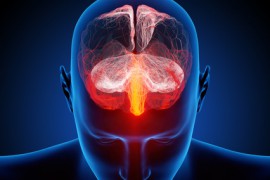Bacteria from the mouth might play a significant role in the development of a brain aneurysm, according to research published in Acta Odontologica Scandinavica.
In a study to compare the bacterial differences between ruptured and unruptured intracranial aneurysms, researchers found that it didn’t really matter whether the aneurysm had ruptured—both groups had significantly more oral bacterial DNA than the healthy vessel wall samples.
Approximately 70% of the aneurysm specimens had bacterial DNA from oral pathogens. This, according to the study authors, points to a potential role of oral bacteria in the pathogenesis of brain aneurysms.
According to the Brain Aneurysm Foundation, approximately 1 in 50 people in the United States have an unruptured brain aneurysm. When brain aneurysms rupture, they are fatal in 40% of cases and often leave survivors with neurological deficits and/or disabilities.
These statistics, along with the findings of the study, suggest once again that oral health plays a critical role in a person’s overall health and quality of life. Many studies in recent years have found oral pathogens in the vessel walls of patients with heart attacks and strokes, making periodontal disease an established risk factor for cardiovascular disease. Now it appears that this infection and inflammation in the cardiovascular system might also contribute to a person’s untimely death or disability from a brain aneurysm.
The Surgeon General estimates that 80% of the adult population in the United States has some form of periodontal disease, and the presence of pathogenic oral bacteria that cause it increases with age. How many people are walking around with both an unruptured aneurysm and oral pathogens over threshold—both of which can present without signs or symptoms? But more importantly, how many lives could be saved by pathogen-directed examination and treatment?
Source: Bacterial DNA findings in ruptured and unruptured intracranial aneurysms.



